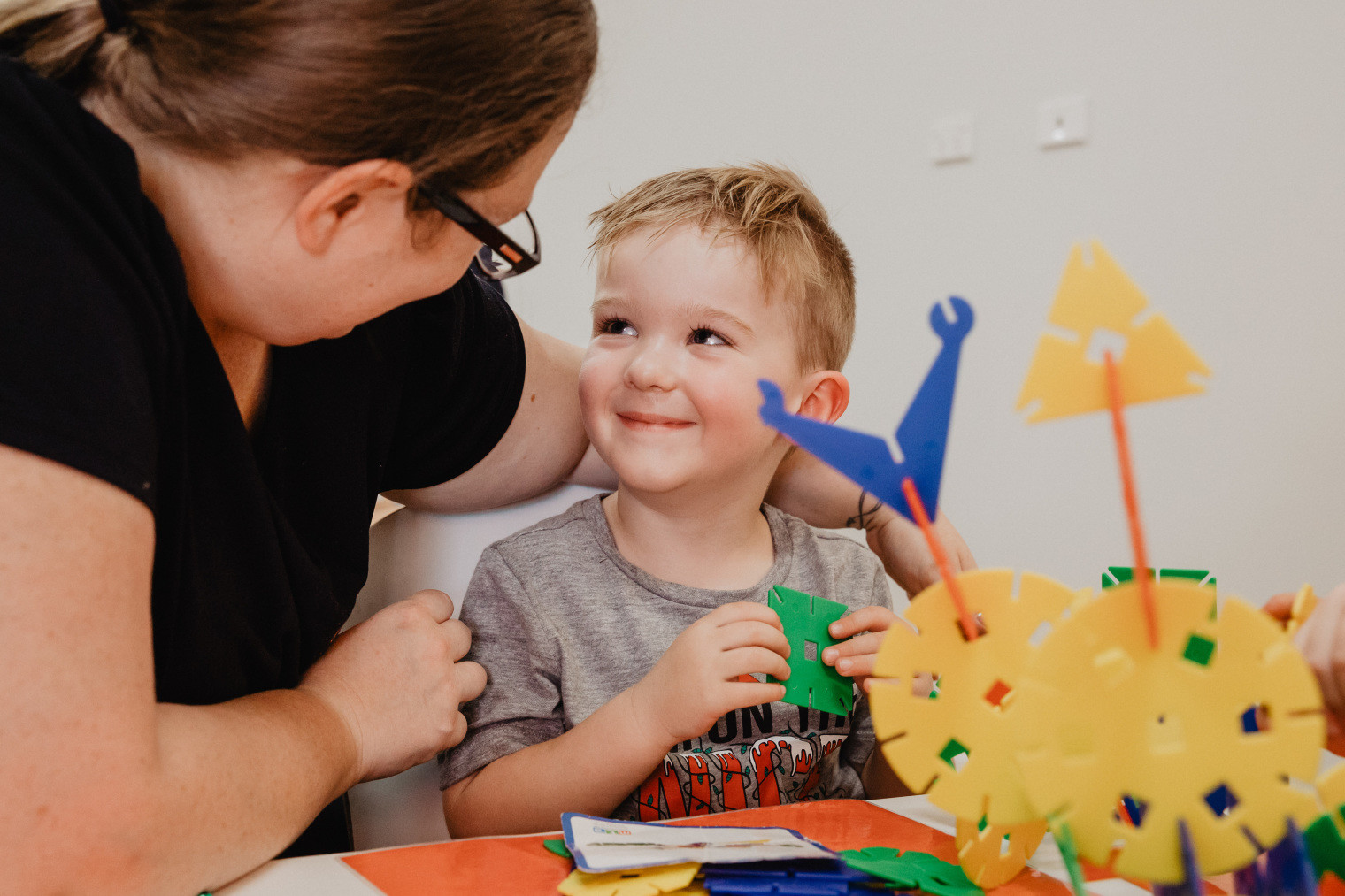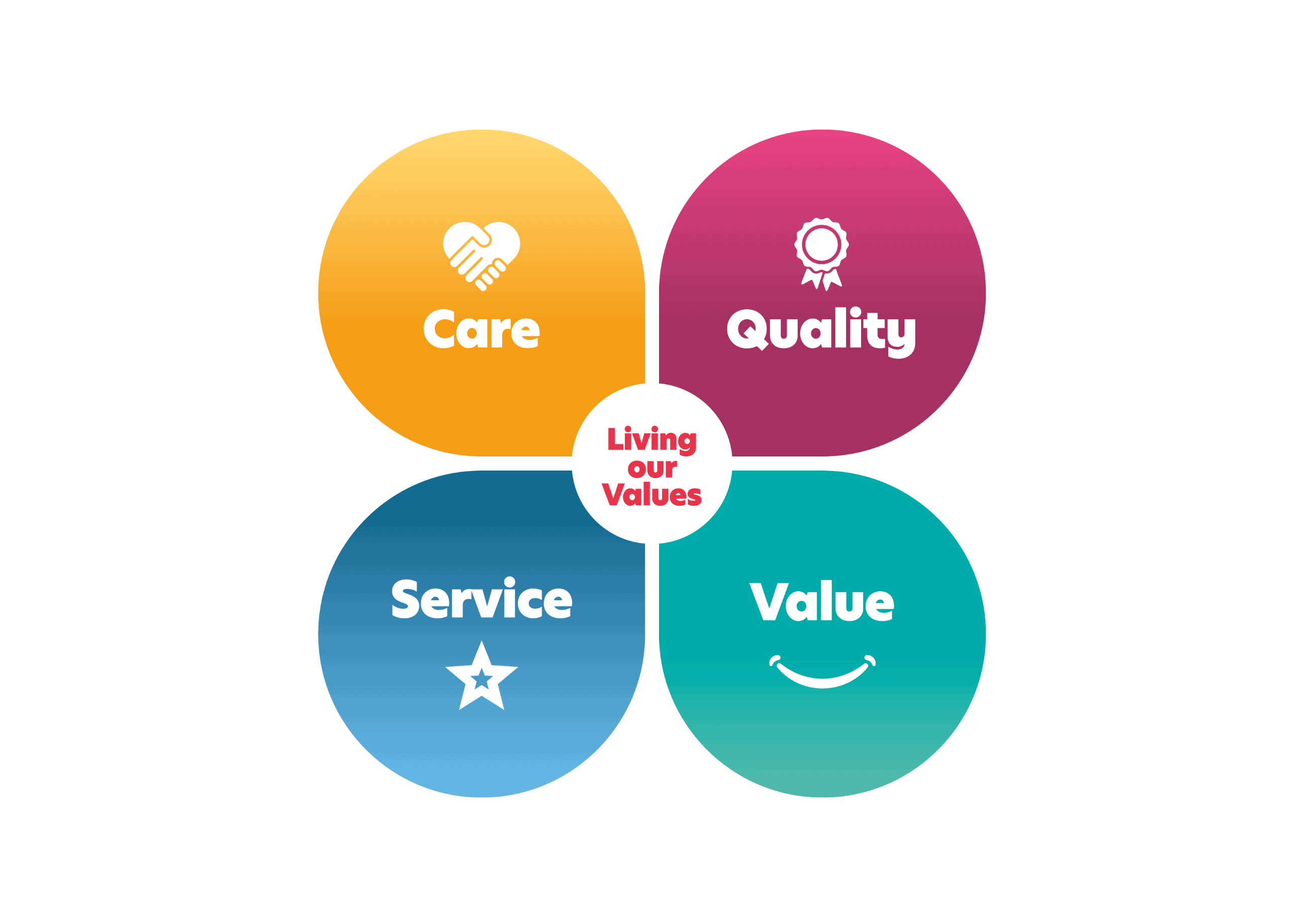
It’s very normal for children to have trouble adjusting during their first weeks of care. However, we know that Families often have concerns about their child’s ability to cope with the demands of a new environment. We’ve put together some tips and advice with the help of Starting Blocks, to help you support your child as they settle into care.
Get them used to the idea of care
- Talk about care with your child, ask them questions about what they think they will do and learn. Let them ask you questions, express their fears, and let them know that you are happy and confident that they will have fun and be cared for
- If possible, start with shorter or fewer days and then gradually increase their time spent at the Service. Once your child has developed a settling routine, they will feel much more comfortable
- Try not to let your emotions or anxieties show. Your child will mimic your emotions. If you are calm, they will feel calm. Try to hold back your tears when you drop them off at care – even though it might be tough!
- Say goodbye confidently and reassure them when you leave that you (or someone else) will be back later to pick them up and bring them home
- Give your child some time to say their goodbyes in the morning. Arrive at the Service early so you have time to settle your child and prepare them for a good day
Comfort them
- Ask your child if they would like to take their favourite toy or a treasured item to the Service to make them feel more comfortable
- Find a preferred staff member who your child loves that they can be left with when you drop them off for the day
- Talk to the Educators in your child’s room about what comforts them, and discuss how you manage activities or times of the day they find unsettling
-
Show empathy; if your child is upset on your way to the Service, talk to them and let them know that what they are feeling is normal and it’s a big step for them as they are growing up
Where possible, organise play dates outside of care. This will help your child be more comfortable with the other children at the Service and also make friends
Encourage Them
- Every time you go to pick up your child from care, tell them how great they did today and ask them to share with you what they learned
- Encourage your little one to pack their own bag with the essentials they will need for the day. If they are too young to pack their bag themselves, ask them if they would like to take a toy or book with them
- Talk to your child about your plans for the day and what time you’ll be picking them up. If your child is nervous or upset about going to care, plan something fun for the evening so they will have something to look forward to and feel excited about
- For your peace of mind, it can be helpful to call the Service during the day to check in and ask how your child settled. Children who become very upset when they are left will often settle very quickly and happily once the actual separation is over
- Speak to the Educators in your child’s room about your concerns, and come up with strategies together on how you can better support your child’s transition
Reconnect with them at the end of the day
Set some time aside at the end of the day to talk with your child and connect. After you pick them up from the Service, give them your undivided attention. Your child hasn’t seen you all day and they might feel grumpy or sad, so shower them with all the love you can.
Create a meaningful conversation with them after their day at the Service.
- Ask them about their favourite activities of the day
- Talk to them about the friends they have made. Ask them to name a few children who they are friendly with or spend time playing with
- If the Service provides food, ask your child what they ate, if they enjoyed it, and who they ate it with
- Talk to them about their favourite Educator and what they like about them
- Mention some items that your child would see or play with at the Service, as this helps them recall situations. For instance, “what did you and your friends make with the blocks?”
- Ask them if they learned anything new today
- Use images or notes from Storypark to remind them about their day and ask them about their activities. For example, “Look at this lovely photo of you in the sandpit. What did sand feel like in your toes?”

